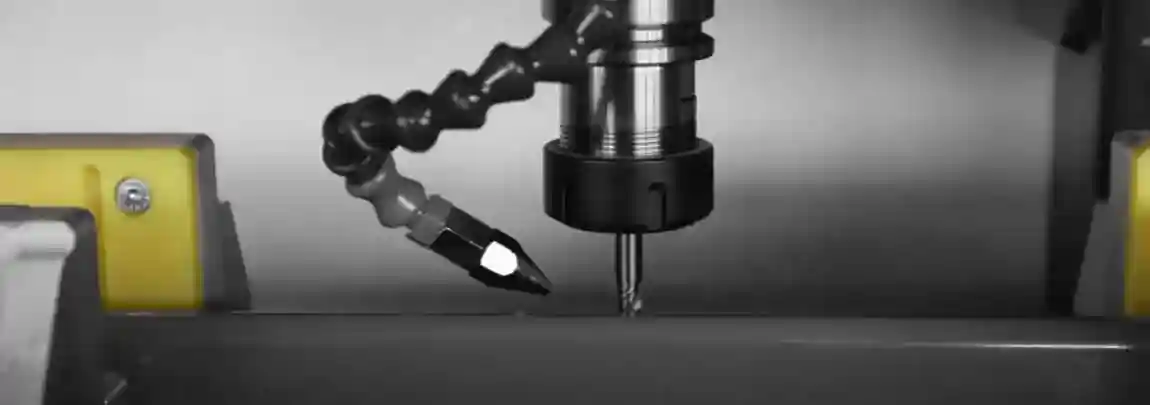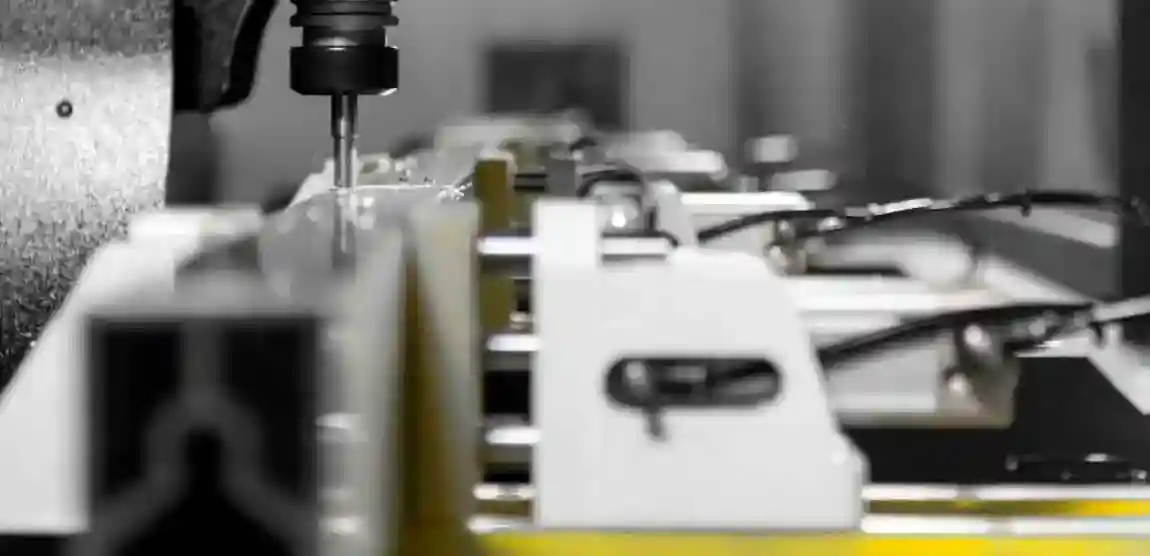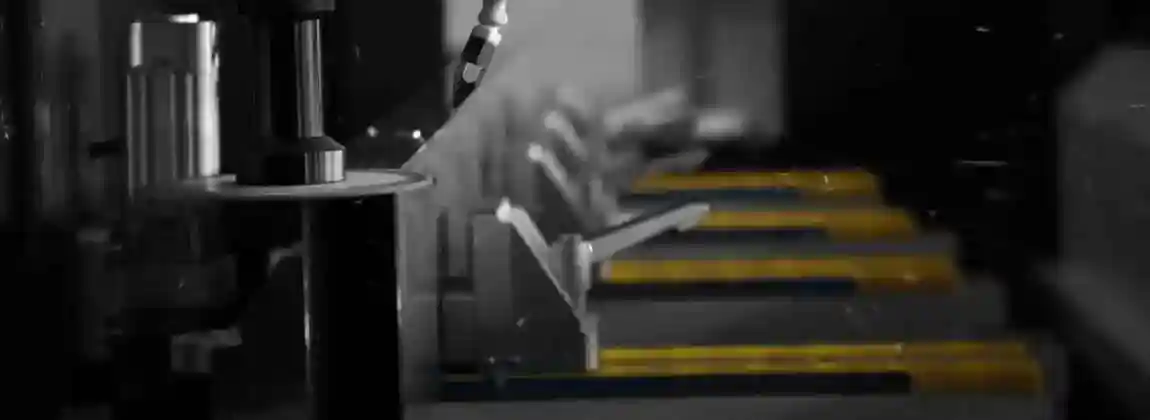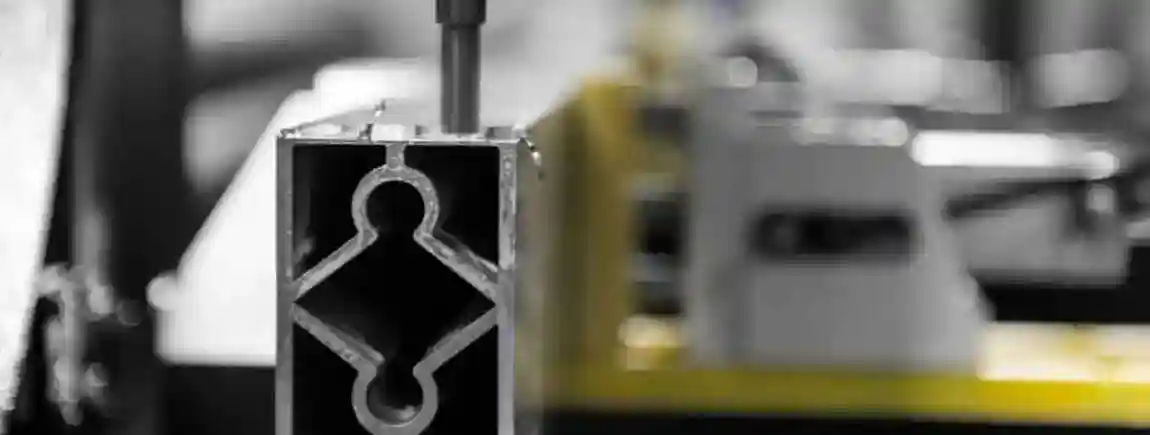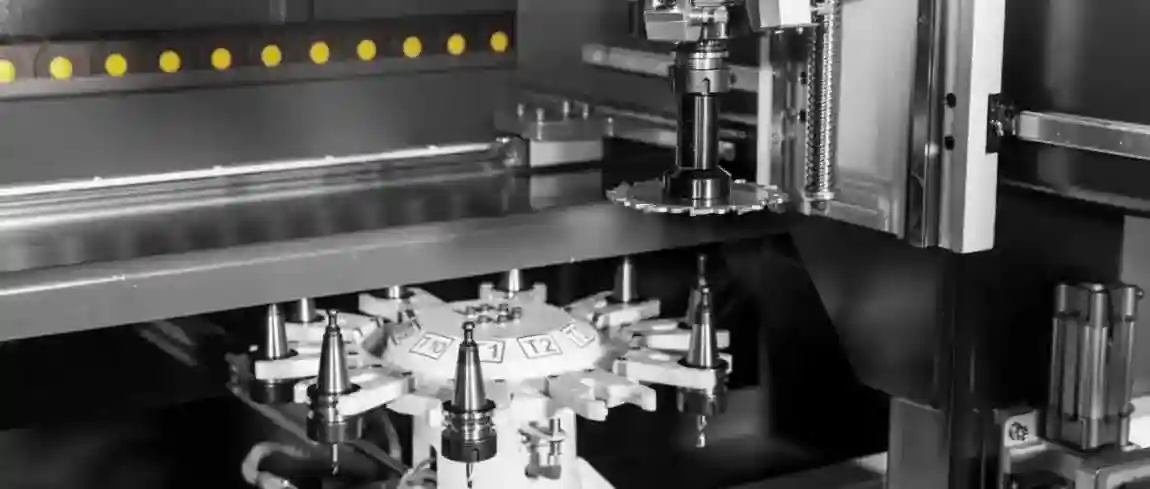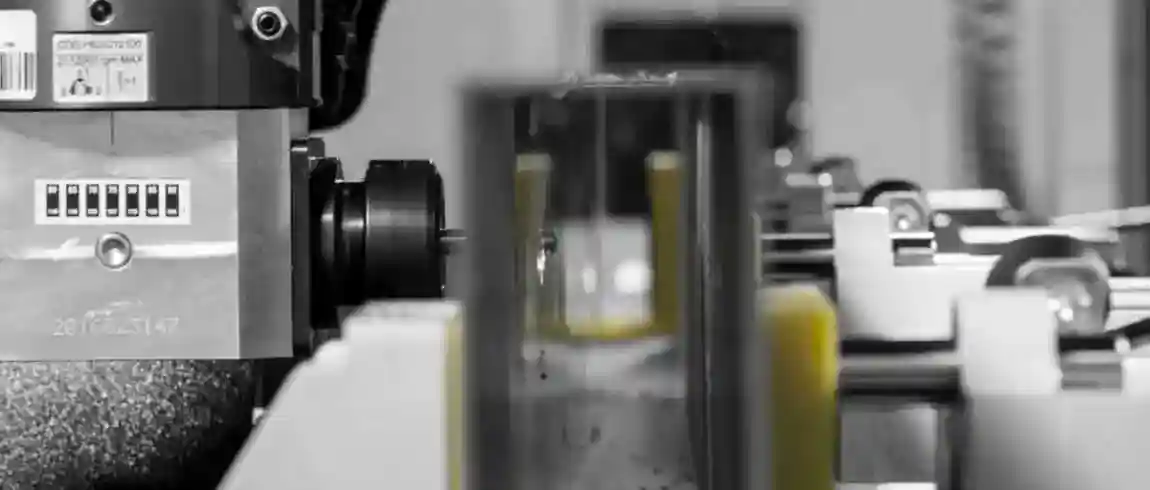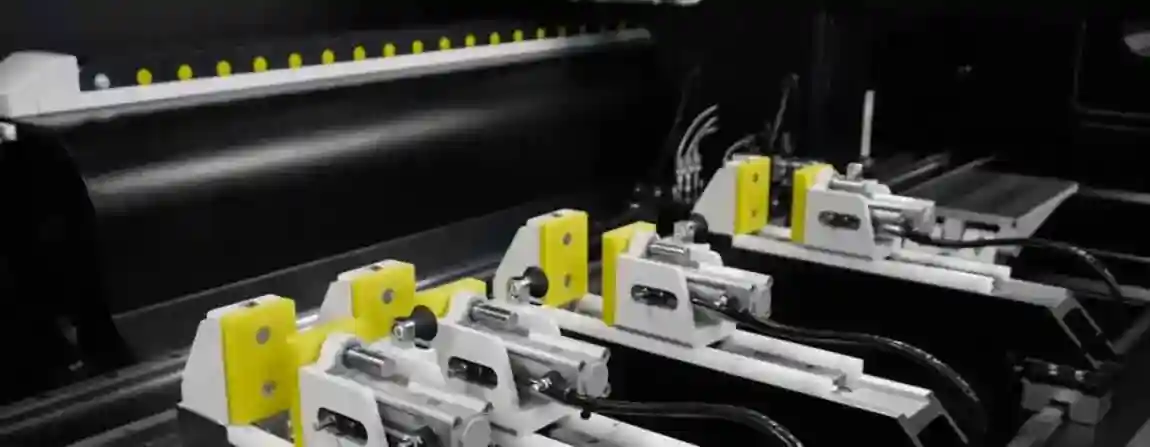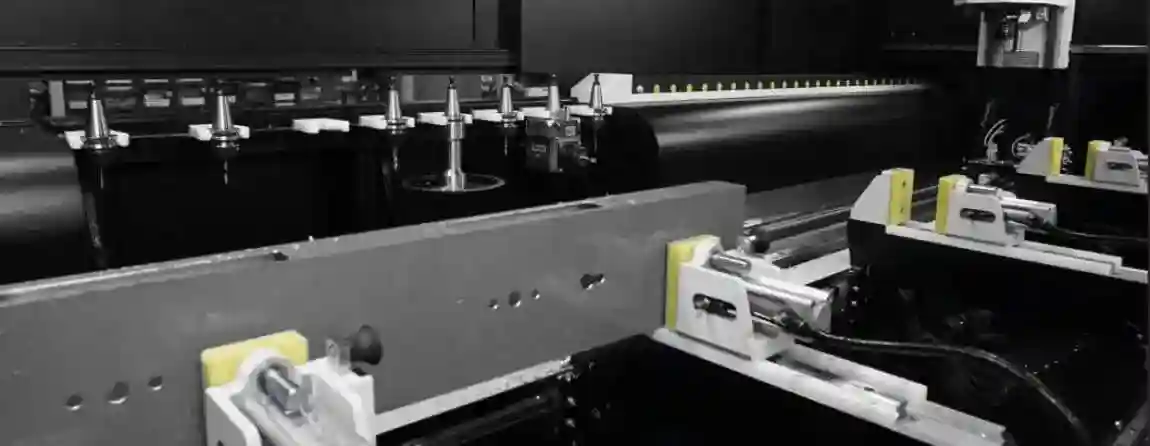-

Company
Product
ALUMINIUM MACHINES
PORTABLE MITER SAWS FOR ALUMINUM
PORTABLE COPY ROUTER MACHINES FOR ALUMINIUM
PORTABLE END MILLING MACHINES FOR ALUMINIUM
AUTOMATIC MITER SAWS FOR ALUMINIUM
COPY ROUTER MACHINES FOR ALUMINIUM
END MILLING MACHINES FOR ALUMINIUM
ALUMINUM CORNER CRIMPING MACHINE
DOUBLE MITRE SAWS FOR ALUMINIUM
AUTOMATIC SAWS FOR ALUMINIUM
BAR PROCESSING CENTERS
MACHINING CENTERS FOR ALUMINIUM COMPOSITE PANELS
NOTCHING SAWS
WEDGE CUTTING SAWS AND NOTCH CUTTING SAWS
MITER SAWS FOR ALUMINIUM
PVC PLASTIC MACHINES
PORTABLE MITER SAWS FOR PLASTIC
PORTABLE COPY ROUTER MACHINES FOR PLASTIC
PORTABLE END MILLING MACHINES FOR PLASTIC
MITER SAWS FOR PLASTIC
COPY ROUTERS FOR PLASTIC
END MILLING MACHINES FOR PLASTIC
WELDING MACHINES FOR PLASTIC
CORNER CLEANING MACHINES FOR PLASTIC PROFILES
DOUBLE MITRE SAWS FOR PLASTIC
BAR PROCESSING CENTERS
GLAZING BEAD SAWS
AUTOMATIC MITRE SAWS FOR PLASTIC
METAL MACHINES
MANUAL METAL SHEET BENDING MACHINE
MANUAL BENDING MACHINES
HYDRAULIC BENDING MACHINES
NON MANDREL BENDERS
PLATE BENDING MACHINES
BORDERING AND TRIMMING MACHINES
HORIZONTAL PRESSES
BELT GRINDING MACHINES
PIPE NOTCHING MACHINES
PIPE POLISHING MACHINES
LASER CUTTING MACHINES
PRESS BRAKES
VERTICAL TURNING CENTERS
MACHINING CENTERS
WOOD MACHINES
GLASS MACHINES
ROBOTICS SPECIAL MACHINERY
Service
Blog
Contact
Blog
- Home
- Blog
- WINDOW MANUFACTURING MACHINES
- WINDOW PRODUCTION MACHINES
WINDOW PRODUCTION MACHINES
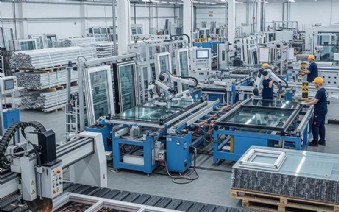
Window Production Machines – The Complete Guide to Modern Manufacturing of Windows, Doors and Façades
Introduction: Why Window Production Machines Are Essential
Windows are far more than just openings in a wall. They define the appearance of a building, let in light, improve energy efficiency, provide sound insulation, and enhance security and comfort.
While wooden windows dominated for centuries and PVC windows grew rapidly in recent decades, aluminium and hybrid windows are booming today – especially in high-rise buildings, office complexes, and modern residential projects.
To meet today’s standards, windows must be manufactured with maximum precision and consistency. This is only possible with specialized window production machines. These machines enable efficient, high-quality, and scalable manufacturing of windows, doors, and façade elements.
What Are Window Production Machines?
Window production machines are industrial systems designed to handle all stages of profile, frame, sash, and glass processing. Typical examples include:
-
Cutting machines (single-head or double-miter saws)
-
Profile machining centers (milling, drilling, grooving, engraving)
-
Copy routers (for hardware, handles, locks, hinges)
-
Welding machines (for PVC/uPVC windows)
-
Corner crimping machines (for aluminium windows)
-
Cleaning machines (weld seam finishing, edge trimming)
-
Assembly and glazing machines
-
Fully automatic production lines for high-volume manufacturing
Production Steps in Window Manufacturing
-
Profile cutting – aluminium or PVC profiles are cut to size.
-
Profile processing – drilling, milling, grooving for hardware and water drainage.
-
Frame and sash assembly – welding (PVC/uPVC) or crimping (aluminium).
-
Finishing – weld seam cleaning, deburring, surface inspection.
-
Assembly – installation of seals, reinforcements, glazing beads, fittings.
-
Glazing – insertion and securing of glass units.
-
Inspection and testing – dimension checks, airtightness, functional testing.
-
Labelling and packaging – order tracking, protection, transport preparation.
Types of Window Production Machines
Profile Machining Centers
-
Multi-axis systems for milling, drilling, grooving, engraving
-
Automatic tool changers
-
Suitable for aluminium, PVC/uPVC, and hybrid profiles
-
High precision for mass production
Double-Miter Saws
-
Two cutting heads for angle cuts
-
Adjustable for 45°, 90°, and special angles
-
Automatic length optimization
Copy Routers
-
Milling of openings for handles, locks, hinges
-
Essential for fitting installation and security features
Welding and Corner Crimping Machines
-
PVC/uPVC: heat welding of corner joints
-
Aluminium: mechanical crimping with corner cleats
-
Ensures structural stability and airtight corners
Cleaning and Finishing Machines
-
Automatic removal of welding residue
-
Clean and visually flawless finish
Assembly and Glazing Machines
-
Automated insertion of seals, fittings, and glazing units
-
Increased productivity, reduced manual work
Fully Automatic Production Lines
-
Combination of cutting, machining, welding, cleaning, assembly, glazing
-
Continuous workflow controlled by barcode or order systems
-
Designed for large-scale industrial production
Benefits of Modern Window Production Machines
-
Precision – millimeter-accurate machining
-
Quality – consistent results in serial production
-
Efficiency – faster throughput and lower material waste
-
Flexibility – works with different profile types and designs
-
Sustainability – recycling of chips and offcuts, energy-efficient drives
-
Safety – machine guards, dust extraction, emergency stops
-
Profitability – shorter payback through higher output and reduced costs
Future of Window Production
The window industry is moving toward fully automated smart factories.
-
Robotics will handle material loading and unloading.
-
Self-learning systems will optimize processes and maintenance.
-
Digital twins will simulate production lines before commissioning.
-
Energy efficiency will be improved with intelligent control systems.
-
Connectivity will link machines with design and planning software.
Frequently Asked Questions
Which machines are essential to start production?
At minimum: cutting, machining, welding/crimping, assembly, glazing.
Which window types can be produced?
PVC/uPVC, aluminium, wood-aluminium hybrid, composite systems.
What is the typical investment?
From entry-level standalone machines (tens of thousands of euros) to fully automated lines (hundreds of thousands).
Conclusion
Window production machines are the backbone of modern window and door manufacturing. They ensure precision, speed, efficiency, and competitive advantage.
Companies that invest in these machines benefit from higher productivity, consistent quality, and long-term sustainability.
- window production machine
- window production machines
- window manufacturing machine
- window fabrication machine
- profile machining center window
- double miter saw window
- copy router window
- drilling and milling machine window
- PVC window welding machine
- aluminium window corner crimping machine
- weld seam cleaning machine window
- window assembly machine
- window glazing machine
- automatic window production line
- industrial window machine
- window profile processing machine
- window frame fabrication machine
- window manufacturing equipment
- window making machine
- window production line
 GERMANY
GERMANY ENGLISH
ENGLISH FRANCE
FRANCE SPAIN
SPAIN PORTUGAL
PORTUGAL

